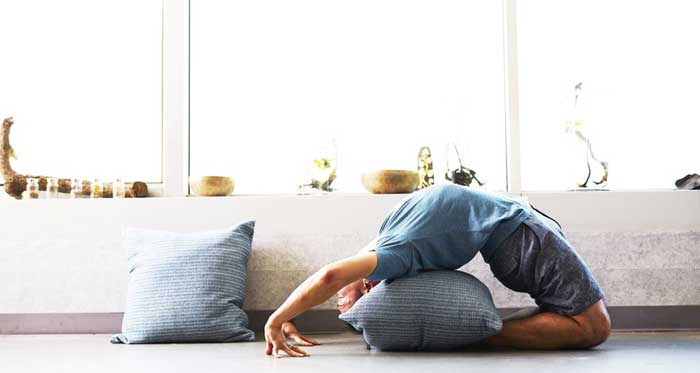Chronic insomnia is a condition that is manifested by difficulty falling asleep, frequent night or early morning awakenings, daytime sleepiness despite keeping regular hours. Everyone suffers from insomnia from time to time – it is caused by stress. When the provoking factor is eliminated, sleep is restored. If stress is not the reason, and problems with sleep remain, you should consult a specialist, since self-treatment can lead to even greater problems.
1. Melatonin will not help against chronic insomnia
Melatonin-based drugs are widely used to treat sleep disorders. This hormone regulating the cycle of sleep and wakefulness is produced in the brain from serotonin in the dark time of the day. Melatonin-based drugs are only effective if there is a decrease in the production of the body’s own sleep hormone, for example, due to aging, severe depression, jet lag or a delayed sleep phase syndrome. In addition, according to research, regular intake of melatonin reduces the risk of developing breast cancer in women working the night shift.
The drug should be taken strictly at a certain time before bedtime. The senseless and uncontrolled intake of melatonin drugs, especially after 00:00, can disrupt the internal biological clock and further aggravate your insomnia.
2. Fatigue is the best pillow
Exercising in the evening allows you to get rid of stress hormones that have accumulated during the day and creates pleasant fatigue – a necessary condition for falling asleep fast. Exercise should be short (30-40 minutes) and extremely intense (to leave you sweating). In addition, it should be completed 2 hours before bedtime.
After an intense load, the so-called cooldown is very important – exercises for stretching muscles and relaxation. A relaxing bath and reading a book will help you fall asleep. Sleep will be deeper and more useful in quality.
3. Listen to a lullaby at bedtime
Pleasant, soothing music helps to put not only kids but also adults to sleep. Music, calm and quiet, is an effective remedy for insomnia. Since ancient times, music therapy has helped to fall asleep quickly, improve the quality of sleep and increase its duration, reducing the number of nightly awakenings.
A useful method for reducing the effects of stress and improving the quality of a night’s sleep is listening to quiet piano music for 8–10 minutes before bedtime and for 2–3 minutes in the morning. Regular listening improves mood, restores sleep, and normalizes the production of your own sleep hormone, melatonin.
4. Daytime sleep is the enemy of night sleep
If you have trouble falling asleep or you often wake up in the middle of the night, give up afternoon naps. Many people who are unable to sleep well at night, try to “catch up” and sleep during the day, especially older people. If daytime sleep is longer than 1 hour, then sleeplessness is guaranteed. Slight relaxation in the afternoon or a 30-minute nap no later than 3:00 p.m is permissible.
5. Fall asleep in 120 seconds
Here is a method that is actively used in the US Army and allows you to quickly fall asleep within 2 minutes in any situation. It will take an average of 4-6 weeks to master this technique. First of all, you need to relax the facial muscles as much as possible – including the tongue, lower jaw, and muscles around the eyes, then lower the shoulders, relax the upper and lower arms, and position your arms freely along the body.
Concentrate on slow breathing. To exhale, relax the chest, abdomen, and leg muscles – starting from the hips and to the feet. After the body has relaxed, it is necessary to move on to “cleansing” the brain from the stream of thoughts. There are three possible ways to do this. The first one: imagine that you are lying in a boat on a quiet lake, and there is nothing above you except a clear blue sky. The second one: you are lying in a black velvet hammock in a completely dark room. Finally, you can simply try to repeat to yourself, “Do not think, do not think, do not think” until you fall asleep.
6. 50 sleep disorders
There can be various reasons for insomnia. For chronic insomnia, first of all, you need to consult a doctor to find out all causes of sleep disorders, to undergo diagnostics — night polysomnography — and to set a correct diagnosis, without self-treatment.
Insomnia is an early and sometimes the only symptom of depression or sleep apnea syndrome (cessations of breathing during sleep). The treatment in these cases is quite the opposite.



